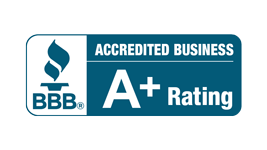Why Bankruptcy Dismissal Happens
Filing for bankruptcy is often seen as a fresh start for individuals overwhelmed by debt, but that relief isn’t guaranteed. Many people are surprised to learn that bankruptcy cases can be dismissed before any debts are discharged.
A dismissal means the court has thrown out your case, often leaving you back at square one with your creditors free to resume collection actions like lawsuits, wage garnishments, and harassing calls.
Understanding why bankruptcy cases get dismissed is critical if you want your filing to succeed. Whether you’re filing under Chapter 7 or Chapter 13, small mistakes or oversights can derail your entire case.
What Does Bankruptcy Dismissal Mean?
When a bankruptcy case is dismissed, it means the court has closed your case without discharging your debts. In other words, you don’t get the fresh financial start that bankruptcy is supposed to provide.
A dismissal can happen at various stages of the process and for a wide range of reasons. Unlike a discharge, where eligible debts are wiped out permanently, a dismissal leaves your financial obligations intact and may even put you in a worse position than before you filed.
Types of Bankruptcy Dismissals
- Voluntary Dismissal: In some situations, a debtor may choose to withdraw their bankruptcy petition (usually more common in Chapter 13). [1]
- Involuntary Dismissal: This is more common and occurs when the court or trustee dismisses your case due to a rule violation or failure to meet legal requirements. [2]
Dismissal vs. Discharge: A Quick Comparison
| Feature | Dismissal | Discharge |
|---|---|---|
| Outcome | The case is closed with no debt relief | Debts are legally forgiven |
| Creditor Rights | Creditors can resume collection | Creditors cannot pursue discharged debts |
| Credit Report Impact | Shows as a failed bankruptcy filing | Shows as a completed bankruptcy (better for credit recovery) |
Now, let’s look at the specific reasons why bankruptcy cases get dismissed and how to prevent that from happening to yours.

Common Reasons for Bankruptcy Dismissal
Bankruptcy laws are strict, and even small errors or omissions can result in your case being dismissed. Whether you’re filing under Chapter 7 or Chapter 13, here are the most common reasons why bankruptcy cases get thrown out:
1. Failure to Complete Mandatory Credit Counseling
Before you can file for bankruptcy, you must complete a credit counseling course from an approved agency. This step is legally required and must be completed within 180 days before filing.
- Missed deadline? Your case can be dismissed immediately.
- Solution: Complete counseling early and file the certificate with your petition.
2. Failure to File Required Documents
Bankruptcy requires extensive documentation, including:
- Income statements
- Tax returns
- Lists of assets and debts
- Monthly expenses
Failure to submit any of these documents accurately and on time can result in dismissal.
- Common mistake: Missing Schedule A/B or forgetting to list all creditors.
- Solution: Double-check your petition and work with an attorney if possible.
3. Non-payment of Filing Fees or Chapter 13 Plan Payments
If you:
- Don’t pay your filing fee (or fail to apply for a waiver), or
- Miss payments under your Chapter 13 repayment plan, …the court can dismiss your case.
- Solution: Ask for a fee waiver or installment plan; in Chapter 13, notify the trustee if you experience financial hardship.
4. Fraud or Misrepresentation
Intentionally omitting assets, underreporting income, or lying under oath can lead to immediate dismissal and potentially criminal charges.
- Example: Hiding a second bank account or transferring assets to a relative.
- Solution: Be 100% transparent and disclose everything honestly.
5. Failure to Attend the 341 Meeting of Creditors
This meeting is a required step where the trustee and creditors may ask questions about your financial situation.
- Miss this meeting? Your case may be dismissed on the spot.
- Solution: Mark the date clearly and attend in person or virtually, depending on your district.

6. Not Passing the Chapter 7 Means Test
To qualify for Chapter 7, you must pass a means test that examines your income and expenses.
- If you don’t qualify? Your case may be dismissed or converted to Chapter 13.
- Solution: Review your eligibility before filing.
7. Failure to Follow Court Orders
Courts and trustees may order you to:
- Submit additional documents
- Surrender non-exempt property
- Correct errors in your petition
Failure to comply, whether intentional or due to neglect can lead to dismissal.
- Solution: Always respond to court and trustee requests promptly.
8. Abusive or Repeated Filings
Filing multiple bankruptcy petitions in a short time, especially if done to delay foreclosure or debt collection, is considered bad faith.
- Result: Immediate dismissal and possible 180-day ban from re-filing.
- Solution: Avoid filing unless you are fully prepared to follow through.
Consequences of a Bankruptcy Dismissal
Having your bankruptcy case dismissed can feel like a major setback, and in many ways, it is. A dismissal doesn’t just halt your debt relief process; it can also trigger serious financial and legal consequences.
Loss of the Automatic Stay
One of the biggest benefits of filing for bankruptcy is the automatic stay, a court order that immediately stops most collection efforts, including:
- Foreclosures
- Repossessions
- Wage garnishments
- Lawsuits and judgments
When your case is dismissed, the automatic stay lifts, and creditors can immediately resume all collection activities. In some cases, they may even move faster than before.
Creditors Can Sue or Repossess Assets
With no bankruptcy protection in place:
- Creditors may file or continue lawsuits against you
- Debt collectors can garnish your wages or levy your bank accounts
- Secured creditors (like auto lenders) may repossess collateral
Negative Impact on Your Credit Report
Even though your case was dismissed without a discharge:
- The bankruptcy filing still appears on your credit report
- A dismissed case can stay on your report for up to 10 years
- Future lenders may see it as a failed attempt to manage debt
This can affect your ability to secure loans, rent housing, or even get a job, especially if you file again later.
Barriers to Re-filing
Depending on the reason for the dismissal, you may face waiting periods before you can refile:
- 180-day bar for cases dismissed due to bad faith, failure to appear, or violating court orders
- Repeat filings within 12 months may limit or eliminate the automatic stay in your new case
These limitations can make it harder to get immediate relief the next time around.
Wasted Time and Money
A bankruptcy dismissal can mean:
- You lose months of effort preparing your case
- You may still owe attorney’s fees or court costs
- You’re back to square one with no reduction in debt
Being aware of these consequences is key to avoiding mistakes that could derail your case. Up next, we’ll talk about how and when you can refile after a dismissal and how to make sure you get it right the next time.

Can I Refile After a Bankruptcy Dismissal?
Yes, in most cases, you can refile for bankruptcy after a dismissal, but whether you should and how soon you can depends on the reason for the dismissal and the type of bankruptcy you initially filed.
Let’s break it down:
Reasons for Dismissal Affect Refiling Eligibility
Your ability to refile often hinges on why your case was dismissed:
- Administrative Errors (e.g., missing documents): You can often refile right away after correcting the issue.
- Non-compliance or Missed Deadlines: You may be allowed to refile, but the court may impose conditions.
- Bad Faith Filings: If the court determines you filed in bad faith, such as abusing the process to delay foreclosure, you could face a 180-day waiting period before you can file again.
The 180-Day Rule
Under 11 U.S.C. § 109(g), you must wait 180 days to refile if your case was dismissed because:
- You willfully failed to comply with a court order,
- You failed to appear at your hearing(s), or
- You voluntarily dismissed your case after a creditor filed a motion for relief from the automatic stay.
Will the Automatic Stay Still Apply?
If you’re re-filing after a previous dismissal, you may not get full protection under the automatic stay:
- First Refile (within 12 months): Automatic stay is limited to 30 days, unless you file a motion and prove your case is filed in good faith.
- Second or More Refiles (within 12 months): The automatic stay does not take effect at all unless you file a motion and the court agrees to impose it.
So even if you can refile, your protection from creditors might be weakened or delayed unless the court intervenes.
Should You Refile Under a Different Chapter?
Sometimes, switching to another chapter of bankruptcy improves your chances:
- If your Chapter 7 case was dismissed for failing the means test, Chapter 13 may still be an option.
- If your Chapter 13 plan was unworkable due to job loss or income changes, you might qualify for Chapter 7.
Always consult with a bankruptcy attorney to help you determine the best strategy based on your circumstances.
Tips for a Successful Refile
- Fix what went wrong. Whether it was incomplete paperwork, missed payments, or a lack of preparation, learn from your mistakes.
- Gather proper documentation. Stay organized and submit all required schedules and forms.
- Hire a bankruptcy attorney (if you didn’t before). A second attempt is more likely to succeed with experienced legal guidance.
- File a motion for stay protection. If you’re re-filing within 12 months, be proactive about requesting the automatic stay.

How to Avoid Bankruptcy Dismissal
Filing for bankruptcy is a serious legal process that requires accuracy, honesty, and timely action. If you’re considering filing or refiling, it’s crucial to take proactive steps to avoid having your case dismissed. Here’s how:
Hire an Experienced Bankruptcy Attorney
While it’s possible to file without an attorney (“pro se”), it greatly increases the risk of errors and dismissal.
- Why it helps: Bankruptcy attorneys understand the complex legal requirements and can catch mistakes you may miss.
- Tip: Choose someone who specializes in bankruptcy, not just general law.
Complete Credit Counseling Early
Make sure to complete your pre-filing credit counseling course from an approved provider and obtain the certificate before filing.
- Deadline: Within 180 days before filing
- Bonus tip: Also, complete the post-filing debtor education course before your discharge is finalized to avoid delays.
Stay Organized with Documentation
The bankruptcy process involves dozens of forms and supporting documents. Missing just one schedule or statement can cause a dismissal.
- Checklist: Gather pay stubs, tax returns, bank statements, debt lists, and asset documentation ahead of time.
- Pro tip: Use a folder or digital system to track submission dates and copies of filed documents.
Show Up to All Hearings
The 341 Meeting of Creditors and any court hearings are mandatory.
- Missed appearance = possible dismissal
- Solution: Mark your calendar, set reminders, and reschedule immediately if you have a valid conflict.
Make All Required Payments
- For Chapter 7, pay the filing fee on time or apply for a waiver/installments.
- For Chapter 13, begin plan payments within 30 days of filing, even before the court confirms the plan.
Be Honest and Transparent
Full disclosure is essential. Omitting creditors, assets, or recent transfers, even unintentionally, can be viewed as fraud or bad faith.
- Golden rule: When in doubt, disclose it.
- Reminder: Bankruptcy is built on trust and good faith. Trying to “game the system” rarely works and often backfires.
Comply with All Court and Trustee Requests
If the trustee or court asks for additional documents, corrections, or clarifications, respond quickly and accurately.
- Tip: Don’t ignore mail from the court or trustee. Set a weekly reminder to check updates in your case docket or portal.
A bankruptcy dismissal isn’t the end of the road, but it is a serious setback. Whether it’s caused by missing paperwork, non-payment, or a perceived lack of good faith, a dismissal can leave you exposed to creditors and back at square one financially.
The good news? Most dismissals are preventable. With careful preparation, legal guidance, and a clear understanding of your obligations, you can avoid common pitfalls and move forward with confidence.
If your case has already been dismissed, don’t panic. You may be able to refile and still get the fresh start you deserve. Just be sure to address the underlying issues before trying again.
Contact Richard West for a free bankruptcy consultation to avoid a dismissal.
Sources:
[1] Wikipedia contributors. (2025b, April 11). Voluntary dismissal. Wikipedia. https://en.wikipedia.org/wiki/Voluntary_dismissal
[2] Wikipedia contributors. (2024b, October 18). Involuntary dismissal. Wikipedia. https://en.wikipedia.org/wiki/Involuntary_dismissal



